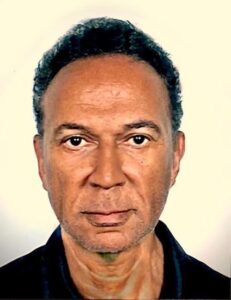
Racial persecutions in France by
Jean-Pierre Urgin
Racism is a serious social issue in France, which is largely ignored.
According to a 2023 survey commissioned by the Representative Council of France’s Black Association, 9 in 10 black people in mainland France say they are victims of racist discrimination.
The case of my, a black French judge’s, assault at home by the racist, extreme right-wing shines a light on the unjust values of French society.
I am a retired magistrate of the French judicial order.
I am the first magistrate of Guadeloupean origin and from a poor neighbourhood.
I was also the chair of the International Court of Justice of the African Diaspora, which aims to return to Africa the cultural and religious works stolen by the European colonisers.
In 1993, the Detroit, Michigan City Parliament offered me honorary citizenship of the city for resisting racist attacks by my government. The French officials never forgave me for this support.
Between the two rounds of the 2017 presidential elections, my eldest son and I were attacked at our family home in Bessan, a town in the south of France, which voted 67.56% in favour of a far-right president.
This attack occurred as I was preparing to publish a book of testimony on the endemic hostility of the judiciary towards African people and those of French-African descent.
In this book, I also denounce the judicial child criminal networks of Normandy and Hérault.
This grievous act of assault alleged to have been orchestrated in collusion with Robert Ménard, a French far-right Mayor of Béziers, whom the National Front party backs, was meant to intimidate.
Africans and their national descendants have become easy targets in France, and their attackers benefit from total impunity.
Beyond the roleplay in the lying national political theatre, the racist National Front party can always count on President Macron and vice versa.
One stirs up racial and social tensions to cause chaos, and the other pretends to fight it but uses it to govern.
Therefore, in the country, Robert Ménard is one of the rare political supporters of the French President’s proposal to send French soldiers to fight in Ukraine against Russia.
These barely concealed reactionary values are aimed at preserving white domination.
They do not just prevent the development of other world cultures.
They block the development of people they consider foreigners in their land.
Any white foreigner settling in France is treated better by the institutions than a person of African origin who has always been French.
The image of West Indians (my father was Guadeloupean ), for example, is used by the regime, never to promote our singularity but constantly to fuel the Negrophobia of racists scattered throughout all layers of society.
Ultimately, security reasons compelled me to flee my country and take refuge, along with my eldest son, in Sweden.
But the world is changing. Multipolarity and a world with fairer rules are on their way.
This change is making me more determined than ever to deliver my testimony.
South Africa’s role in building a multipolar and more just world inspires me.
I came to South Africa in 1994, where I served the country as an international UN observer during your first free elections.
I have emotional memories of meeting Nelson Mandela.
Today I go back to the origin of this feeling, in the hope of getting the help of the country who got rid of the official apartheid, because the stifling of my harassment works in favour of this harmful, French regime.
Tshwane Talks readers have been able to read stories in this publication for free for over two years now. We still want our readers to access our stories for free, but we are asking those among our readers who can afford it to contribute at least R30 a month to cover some of the costs of publishing this independent, non-aligned online newspaper which gives a voice to all sectors of society irrespective of race, colour, creed, religion, or political affiliation. You may make your contribution by depositing at least R30 a month into Tshwane Talks' bank account. Details are as follows:
Bank Details
Bank: Standard Bank
Account Number: 10225548834
Account Type: Cheque Account
Nice blog here! Also your web site loads up very fast!
What host are you using? Can I get your affiliate link
to your host? I wish my site loaded up as fast as yours lol!